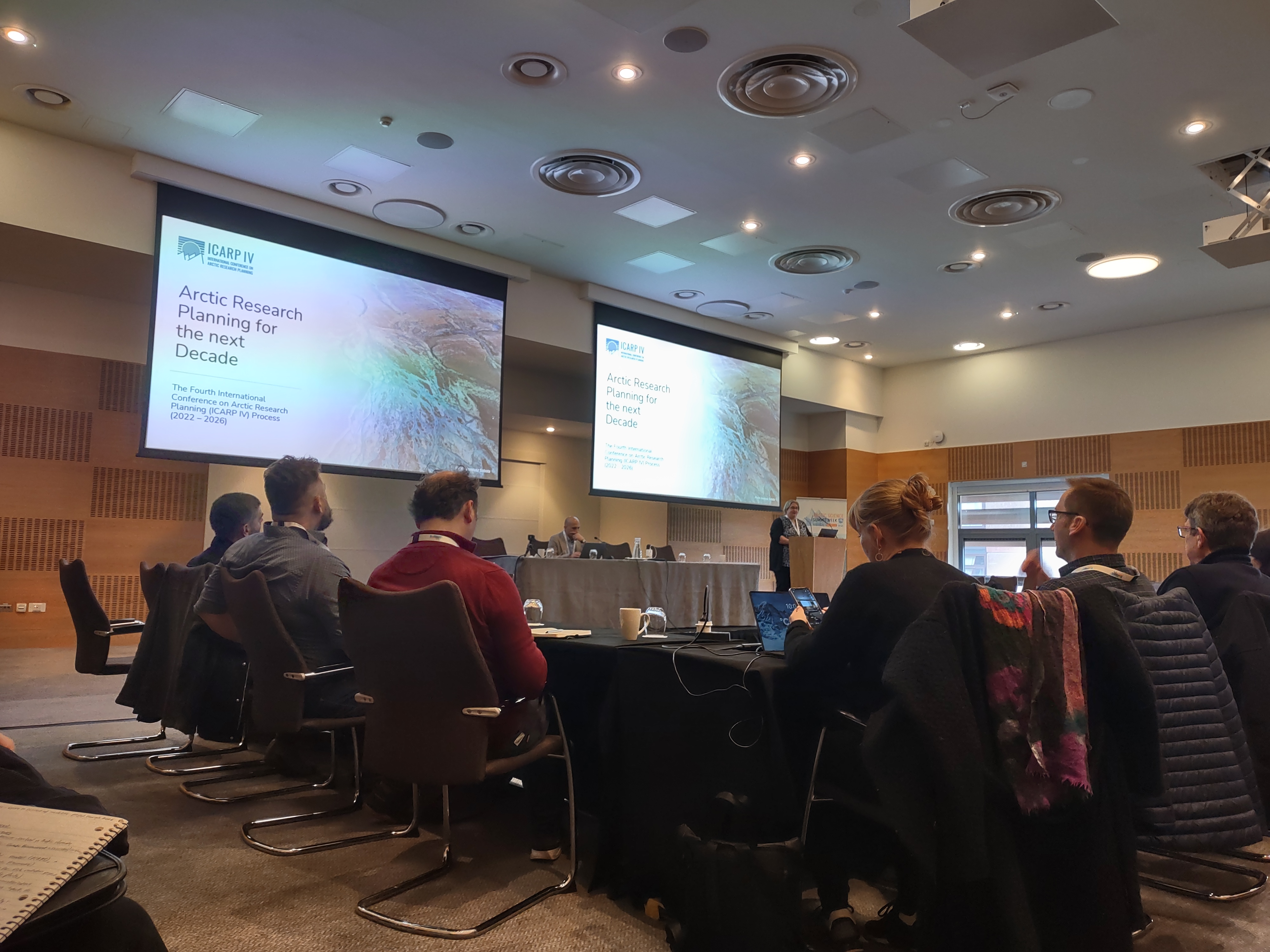Toolik management joins international collaborators to plan next decade of Arctic research
Haley Dunleavy
907-474-6407
Aug. 6, 2024

Research Priority Team members for the Fourth International Conference on Arctic Research Planning gather at Arctic Science Summit Week in Edinburgh, Scotland in March 2024.
This March, management team members from Toolik Field Station attended the International Conference on Arctic Research Planning to begin charting the way forward in addressing Arctic research’s most urgent needs over the next decade.
Team members met with international collaborators during Arctic Science Summit Week in Scotland to kick off a multi-year process of identifying critical knowledge gaps and priorities in Arctic research. Attendees from across the circumpolar Arctic assembled into seven different teams, each tasked with their own priority area in research. Over the next year, the groups will explore emerging gaps in Arctic ecological research, the region’s role in global change, and scientific collaboration with Indigenous communities. Focus areas also include sustainability, infrastructure, technology, education and communication.
“The newest ICARP IV process really opens the door for full participation by both western scientists and Indigenous voices in setting international research priorities,” said Syndonia Bret-Harte, Toolik Field Station’s science co-director and principal investigator. “It not only allows us to focus on tackling the key issues emerging in Arctic research, it also enables us to prepare Toolik Field Station to support the evolving needs of Arctic research.”
At the meeting, each of our team members provided insights from managing Toolik Field Station, the world’s largest Arctic research station.
Both Bret-Harte and Toolik program administrator Marin Kuizenga are co-chairing teams: Bret-Harte for the team observing and predicting future climate dynamics and ecosystem responses in the Arctic, and Kuizenga the team addressing Arctic research infrastructure, technology, logistics, and services. Spatial and Environmental Data Center manager Amanda Young is the secretary for the team focused on knowledge co-production and Indigenous-led methodologies to better understand how research and researchers can best support Indigenous communities throughout the Arctic. Station supervisor Mike Reynolds joined the team on understanding the vulnerability and resilience of Arctic communities and support sustainable development.
Toolik management will continue to meet virtually with ICARP collaborators throughout the year as they identify top Arctic research priorities and explore pathways to address research needs. Teams will regroup in March 2025 at Arctic Science Summit Week in Boulder, Colorado, where the group will incorporate public feedback to finalize a decade-long plan to adapt and prepare for the changing Arctic.



